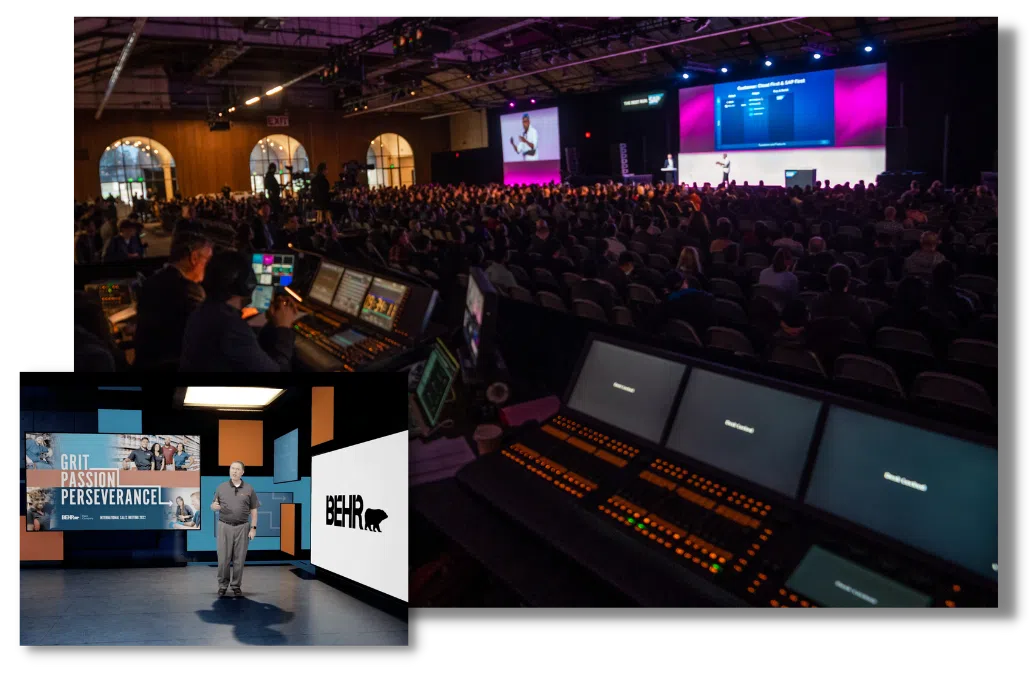Understanding Exactly How Occasions Production Functions: A Comprehensive Overview of the Process
The intricacies of event manufacturing demand a methodical strategy that integrates several phases, each playing a vital duty in the overall success of an occasion. From the first planning and idea growth to the meticulous sychronisation of logistics, every component must line up flawlessly to achieve the preferred end result. Recognizing the nuances of budgeting, resource allowance, and on-site monitoring is essential for any type of specialist in this area. As we explore these components additionally, it comes to be evident that the process is not simply concerning implementation but likewise concerning constant renovation and calculated evaluation. What insights can we amass from each phase?
First Planning and Concept Development
Effective preliminary planning and idea advancement act as the structure for effective events production. This stage involves defining the occasion's objective, target market, and preferred results. A clear vision is necessary; it guides all subsequent decisions and helps line up the team's initiatives toward a typical goal.
During this phase, brainstorming sessions can be very useful. Engaging stakeholders, including clients, enrollers, and possible attendees, cultivates a joint environment that produces ingenious ideas. In addition, thorough market research need to be carried out to comprehend fads, preferences, and potential challenges.
When the concept is developed, it is crucial to create an in-depth occasion outline. This rundown should consist of the event's theme, style, and key tasks. Establishing a timeline is just as essential, as it aids to handle target dates and tasks successfully.
Budgeting and Resource Allowance
With a solid idea in area, attention needs to turn to budgeting and resource allotment, which are essential elements in executing the event efficiently. A distinct budget acts as a roadmap, detailing all expected expenses and readily available resources. It starts with recognizing taken care of and variable expenditures, including location service, event catering, staffing, marketing, and innovation. Each classification needs to be carefully computed to stay clear of overspending and to ensure that funds are assigned suitably.
Resource allotment involves assigning both financial and human resources to different tasks and elements of the event. Prioritization is essential; necessary components need to receive appropriate funding while much less important facets might need a much more conventional technique. Contingency planning is crucial-- allocating a section of the budget plan for unexpected expenses can minimize economic dangers.
On top of that, reliable interaction among employee regarding budget restraints promotes collaboration and technology. This advertises the responsible usage of sources and encourages creative remedies to stay within budget. Inevitably, a tactical strategy to budgeting and source appropriation lays the groundwork for a successful occasion, making it possible for coordinators to focus on delivering a remarkable experience for participants while maintaining economic honesty.
Logistics and Sychronisation
Browsing the complexities of logistics and sychronisation is important for the smooth implementation of any occasion. This stage involves precise preparation and company to guarantee that all elements operate in consistency. Crucial element consist of place selection, transportation plans, and the organizing of various activities.
Efficient logistics starts with an extensive analysis of the place's capabilities and limitations. This consists of understanding the layout, gain access to points, and offered sources. As soon as the place is confirmed, transportation logistics should be developed, Discover More Here encompassing the movement of guests, devices, and products. Working with these elements needs collaboration with vendors, providers, and transportation solutions to make certain prompt distributions and pick-ups.
An additional essential facet is the growth of a thorough timeline that lays out all logistical components leading up to the occasion. This timeline functions as a roadmap, outlining crucial turning points and deadlines for tasks such as tools setup, catering solutions, and audiovisual installments. Regular communication with all stakeholders is vital to address any kind of possible problems proactively.
Implementation and On-Site Administration
Effective implementation and on-site administration are essential for changing careful plans into reality throughout an event. This phase involves the smooth sychronisation of various elements, ensuring that every information lines up with the recognized vision. On-site managers play a pivotal duty, functioning as the central point of communication amongst suppliers, personnel, and stakeholders. Their ability to make real-time decisions can dramatically influence the occasion's success.
A distinct schedule is crucial, functioning as a roadmap for all activities. Event managers need to ensure that setup takes place on time, adhering to timelines for audio checks, providing deliveries, and guest arrivals. Efficient analytic skills are likewise crucial; unanticipated challenges can occur, needing fast reasoning and adaptability to preserve the event's circulation.
In addition, focus to guest experience is critical. Checking visitor communications, ensuring safety protocols are complied with, and supplying assistance personnel to attend to problems cultivates a favorable atmosphere. This degree of engagement not only enhances the overall experience but also reflects the expertise of the occasion group. Event Productions. Inevitably, effective implementation and on-site monitoring joint on thorough prep work, reliable interaction, and a dedication to providing an exceptional occasion for all entailed.

Post-Event Evaluation and Responses
The culmination of any type of occasion lies not only in its implementation yet likewise in the detailed assessment that complies with. Post-event analysis is important for establishing the overall success of the event and determining locations for renovation. This process usually entails celebration feedback from different stakeholders, consisting of participants, suppliers, and team members, to acquire a detailed viewpoint on their experiences.
To structure the analysis, event organizers frequently use meetings and studies, concentrating on crucial efficiency indications such as guest fulfillment, logistical effectiveness, and spending plan adherence. Analyzing this More about the author data enables coordinators to evaluate whether the event satisfied its goals and to comprehend the staminas best site and weaknesses of the execution.
By methodically attending to feedback and applying modifications, occasion experts can boost their strategies, inevitably leading to more impactful and successful occasions. In conclusion, post-event examination is an important action in the event manufacturing process that makes sure ongoing development and excellence in future undertakings (Event Productions).
Conclusion

The complexities of occasion production demand a systematic approach that incorporates numerous stages, each playing a critical role in the general success of an occasion.With a solid principle in place, focus should transform to budgeting and source allotment, which are essential components in performing the occasion efficiently.Resource allowance entails designating both human and monetary sources to different jobs and parts of the event. Inevitably, a tactical strategy to budgeting and resource allowance lays the foundation for a successful event, making it possible for planners to concentrate on supplying a memorable experience for attendees while maintaining financial stability.
